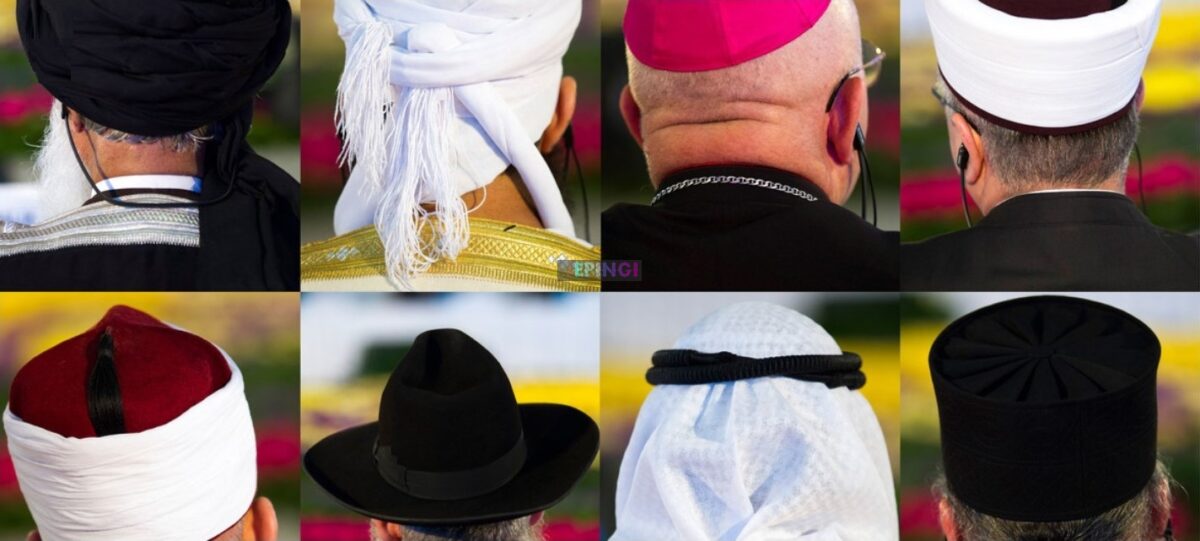How to celebrate religious holidays in the era of the COVID-19 pandemic?
In anticipation of a number of religious holidays – Easter, Passover, and Ramadan – the World Health Organization (WHO) issued detailed practical recommendations for religious leaders on how to protect the flock from COVID-19 these days. And the UN Secretary-General called on to draw spiritual strength “at the very core of these sacred events.”
Addressing warm wishes to all those who celebrate Easter, Passover, and Ramadan these days, the UN Secretary General noted that these holidays are moments of unity: “This is a time when families get together. A time of hugs and handshakes, a time of unity of the human spirit. But this time, everything is not as always. ”

“Now we are all trying to find our way in some strange, surreal world,” said Antonio Guterres. – The world of silent streets. A world of tightly closed shop windows. The world of empty temples. And finally, the world of anxiety. ”
In a special appeal to the religious leaders of all faiths, the head of the UN called on them to join forces in the name of peace and focus on “our common battle with COVID-19 .”
Now we are all trying to find our way in some strange, surreal world
The World Health Organization (WHO) emphasizes that since religious leaders have respect and trust in people, they can play a critical role in containing the coronavirus pandemic. In anticipation of three religious holidays at once, the Organization issued detailed practical recommendations on how to celebrate holidays without exposing ourselves or others to the danger of contracting a coronavirus.
Regarding the gathering of people in temples, synagogues, and mosques, experts urge to follow the recommendations of the national authorities, but even if they are allowed, observe strict sanitary and hygienic measures: constantly keep at least one meter apart from each other, do not touch others, Do not hug and kiss each other and do not apply to the shrines.
If it is impossible to ensure the safety of parishioners, then religious services need to be canceled or an opportunity to conduct them remotely is found, the WHO recommends.
Let us draw spiritual strength from the very essence of these sacred events, using them as an opportunity for reflection, remembrance, and renewal.
And the main thing is not to lose the spirit of these special celebrations. “Let’s draw spiritual strength from the very essence of these sacred events, using them as an opportunity for reflection, remembrance and renewal,” the UN Secretary General urged. “In our thoughts, let us leave a special place for thoughts about the heroic paramedics who are at the forefront of the fight against this terrible virus – and about all those who work to support life in our cities and towns.” He also asked not to forget about people in war zones, refugee camps and slums – about all those who are practically defenseless against the virus.
“And let us again be imbued with faith in each other and will draw strength in the good, which is gaining strength in difficult times, when people of different faiths and different moral traditions unite in caring for each other,” concluded Antonio Guterres.
“And let us again be imbued with faith in each other and will draw strength in the good, which is gaining strength in difficult times, when people of different faiths and different moral traditions unite in caring for each other,” concluded Antonio Guterres.
Trolls World Tour arrives digitally release and also in Italy
How to celebrate religious holidays in the era of the COVID-19 pandemic?, How to celebrate religious holidays in the era of the COVID-19 pandemic?, How to celebrate religious holidays in the era of the COVID-19 pandemic?, How to celebrate religious holidays in the era of the COVID-19 pandemic?,

